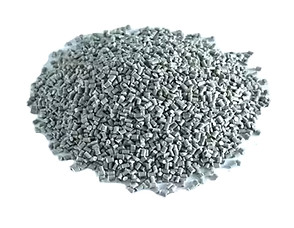
Materials
Circular materials. Designed to return.
Recycled polymers, PolyAl, and custom material streams engineered for performance, sustainability, and closed-loop manufacturing.
Circular materials
We prioritize performance, cost efficiency, and sustainability by selecting the right materials for each application. Using recycled polymers, PolyAl from Tetra Pak, and even your own plastic waste streams, we create customized, circular plastic solutions that maximize material value and minimize environmental impact.

PolyAl
We are a provider of PolyAl products in Scandinavia, a recycled plastic material from Tetra Pak. To address the challenge of managing plastic and aluminum in packaging products, a new method transforms waste into high-quality pellets. This process facilitates the production of entirely and recyclable products for a very competitive cost.

Recycled polymers
We utilize a wide range of recycled polymers from both post-production and post-consumer sources. Whether you prefer material from a specific source or one that meets your performance and cost requirements, we provide a recycled material to match your preferences.

Your materials
We can repurpose your own material streams, whether it's plastic waste from your production, your products or even some of your collaboration partners. By maximizing the value of your materials, we transform them into new products—delivering a truly circular solution within your own ecosystem.
PolyAl - From cartons to new materials
A beverage carton consists of approximately 75% paper fiber and a 25% mix of various polymers (HDPE, LDPE, PP) combined with aluminum foil. This combination of materials ensures a long shelf life for the carton’s contents. The complete recycling of used beverage cartons occurs in two steps. First, paper mills recover the paper fibers. Then, in a separate process, the polymers and aluminum are transformed into widely applicable plastics. Consumers use and dispose of beverage cartons, which are then collected and sorted. The combined material is transported to paper mills, where the paper fibers are recovered and repurposed into products such as hygiene paper and kraftliner.
Why PolyAl?
Main benefits
High concistent quality
With PolyAl, we source high-volume material directly from paper mills, ensuring a steady, reliable supply of quality and price, that's less impacted by the plastics market.
Energy effeciency
Compared to standard plastic, PolyAl production is highly energy-efficient. Instead of using excessive heat to melt and pelletize recycled plastic, we simply apply pressure to form pellets.
Upcycling
PolyAl enables the recycling of complex multimaterial waste, driving industries to innovate and repurpose waste more effectively.
The process
Maximizing output
When processing PolyAl, 99% of the input stream is recycled, combining low energy consumption with a high separation rate of approximately 98% for the LDPE/ aluminum foil fraction and the hard fraction, primarily composed of HDPE caps and closures. During the process, the only ‘reject’ is vaporized water moisture added during the paper mill pulping process that remains in the PolyAl-reject. The recycling plant operate on mechanical principles without the use of water, chemicals, or heat, ensuring a sustainable and efficient process.

High-quality plastic material
How does PolyAl get recycled?
A beverage carton is made from paper fiber, various polymers (such as HDPE, LDPE, and PP), and a thin layer of aluminum foil. This multi-material structure preserves the contents and ensures a long shelf life. After use, cartons are collected and sorted. At the paper mill, the paper fibers are recovered and repurposed into products like hygiene paper and kraftliner. The remaining mix of polymers and aluminum is then mechanically separated and processed into high-quality plastic raw materials suitable for a range of applications.

